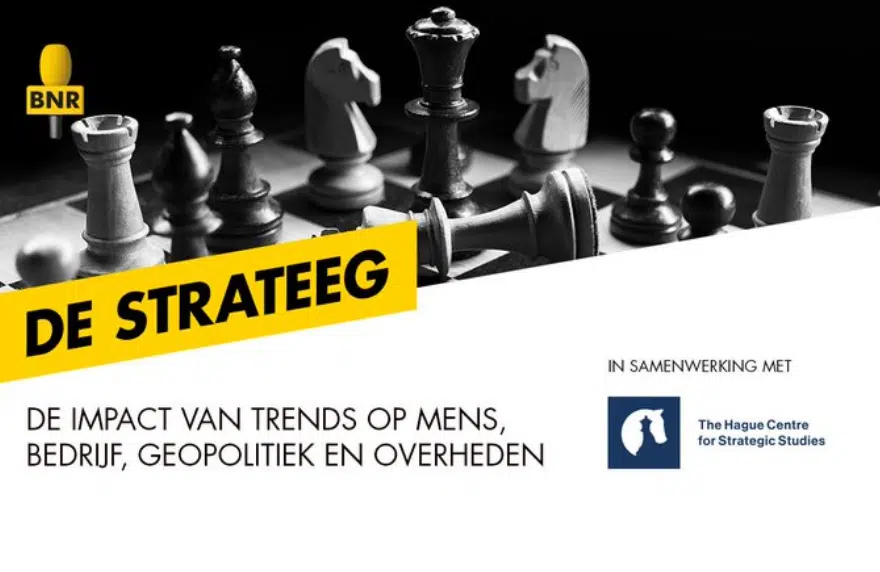Today, the arms control regime of the Cold War is in trouble. Unlike the bipolar world of past, the US would now have to find common ground with both Russia and China. How Europe can shape a reinvigorated arms control regime is an open question, but one which HCSS seeks to answer in our “Strategic Stability: Deterrence and Arms Control” programme, which produces research on a range of interconnected topics and acts as a nexus for expert opinion.
Find out more in this new HCSS paper series by strategic analysts Paul van Hooft, Davis Ellison and Tim Sweijs, featuring guest contributions from Susan Colbourn (associate director of the Program in American Grand Strategy at Duke University), Giles David Arceneaux (Assistant Professor, University of Colorado) and John Maurer (professor at the School of Advanced Air and Space Studies at Air University and a non-resident fellow at the American Enterprise Institute).
Paper | Arms Control and Deterrence: The Euromissiles, Then and Now
In NATO’s most recent Strategic Concept, Western allies touted arms control, disarmament, and non-proliferation as central to strategic stability alongside “effective deterrence and defence” and “meaningful and reciprocal political dialogue.” This paper by guest author Susan Colbourn (associate director of the Program in American Grand Strategy at Duke University) argues that looking to the past can help us consider the advantages and potential risks resulting from this broad approach. Colburn takes the case of NATO’S Euromissiles struggle to argue that there are not neat lessons to be drawn from history nor are there any easy frameworks that can be exported and applied to the problems of the present.
Good Fear, Bad Fear: How European defence investments could be leveraged to restart arms control negotiations with Russia
What is the potential for European investments in advanced conventional weapons that could incentivise Russia back to the negotiating table? Competitive approaches to arms control are not without risk, and it is important to distinguish between “good fear” that is likely to incentivise an adversary to negotiate and “bad fear” that is likely to lead them to escalate with capability investments, posture changes, or procedural changes of their own, write HCSS strategic analysts Paul van Hooft and Davis Ellison in this brief.
Paper | Nuclear Command and Control and Strategic Stability
Strategic stability refers to the ability of states to interact during crises without escalating diplomatic and conventional military disputes to the use of nuclear weapons. This paper by guest author Giles Arceneaux (Assistant Professor, University of Colorado) evaluates the effects of nuclear command and control systems on strategic stability in crisis scenarios. This study defines the concept of nuclear command and control, details the challenges that command and control systems pose for strategic stability, identifies challenges to strategic stability emanating from Russia, China and North Korea, and discusses opportunities for policymakers to reinforce strategic stability in those regions.
Pathways to Disaster: Russia’s War against Ukraine and the Risks of Inadvertent Nuclear Escalation
The risk of inadvertent nuclear escalation due to actions in the conventional domain is a serious, and underrated, feature of the current stand-off between NATO and Russia, following Russia’s 2022 invasion of Ukraine. This brief by HCSS analysts Paul van Hooft, Davis Ellison, and Tim Sweijs notes that NATO leaders and armed forces need to be conscious of unintended signals that can follow the placement of weapons, the movement of forces, and support to Ukraine, especially considering the deteriorating state of Russian armed forces.
Paper | Future European Contributions to Arms Control: Compete to Negotiate
Increasing violence by revisionist regimes is breaking the current arms control regime. In this paper, guest author John Maurer (professor of Strategy and Security Studies at the School of Advanced Air and Space Studies at Air University and a non-resident fellow at the American Enterprise Institute) argues that for Europe today, then, the single most important contribution to the future of arms control is to choose to compete. European countries can best respond by leaning into military technical competition in the short term to produce better arms control results over the longer term.







